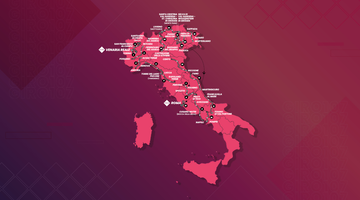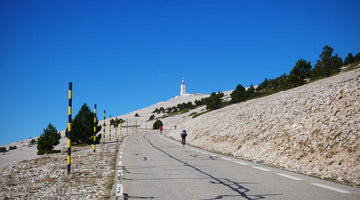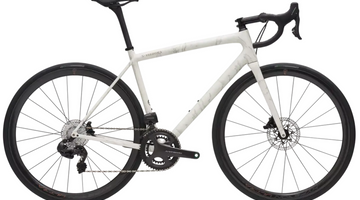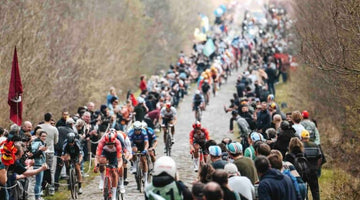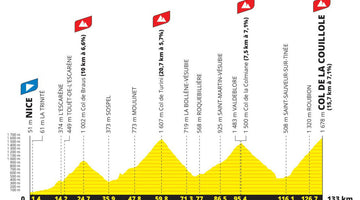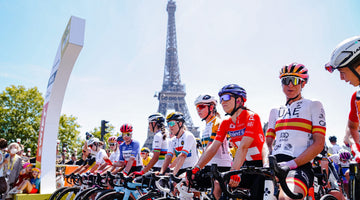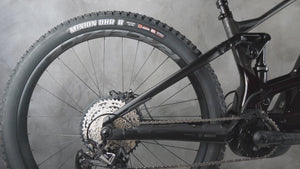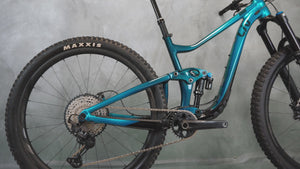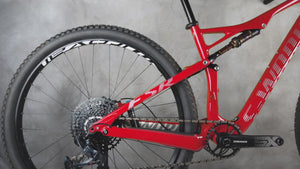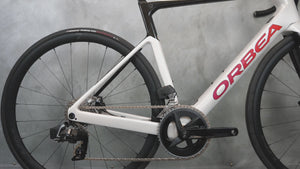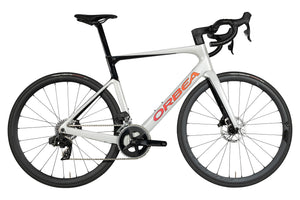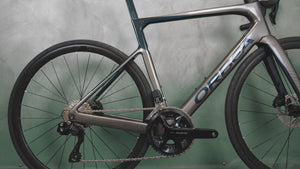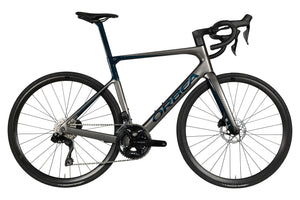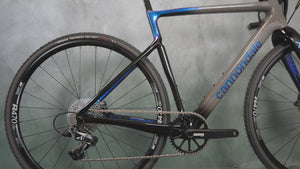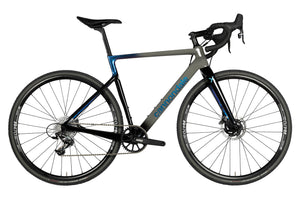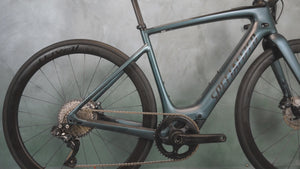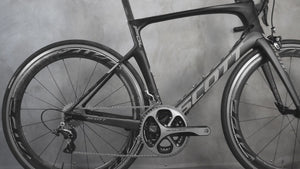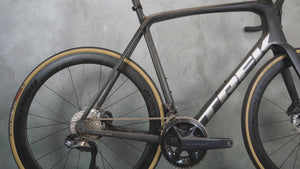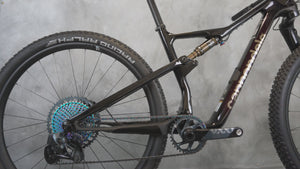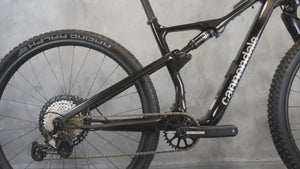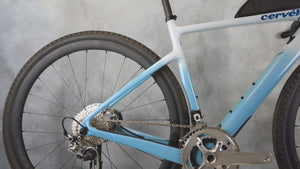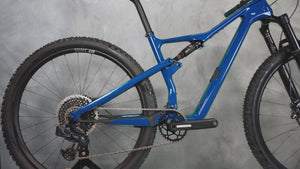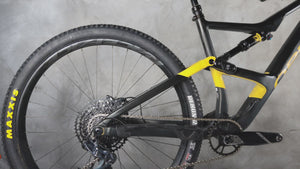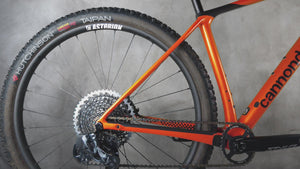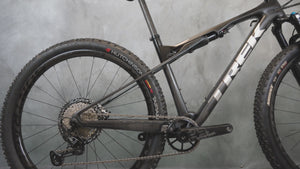Tour de France Women 2022: our guide to follow the competition
In this Article
Published on July 25, 2022
Starting in 2022, the fun and excitement of watching the Tour de France will be doubled. The Tour de France Women will take place this year for the first time (finally!) from July 24 to 31, 2022. Starting in Paris, on the same day as the men's finish, the women riders will take on the challenge on a varied course of eight stages. Flat days, medium mountain stages and two final stages of high mountain which will end at the Planche des Belles Filles.
In this article, you will learn everything you need to enjoy this Tour that promises to be exciting and that includes two major stages at the end. A Tour that will keep us in suspense until the end.
The Tour de France Women, a long wait for women's cycling
Suffering is synonymous with professional cycling, but the pain that female riders have endured for decades to see the return of a women's Tour de France probably goes beyond that. The enthusiasm for the Women's Tour de France, which will be held for the first time with the proper organization and after a 30-year hiatus, is a testament to those whose passion has overcome sometimes shocking sacrifices.
The Tour de France for Women was born in 1955. That year, after half a century of men's races, a five-stage race between Paris and Normandy was organized for women. The lack of sponsors and follow-up condemned the project at its beginning. It was not until 1984, three decades later, that the organizers tried their luck again. Six editions later, in 1989, Frenchwoman Jeannie Longo won the last edition similar to the men's race: a multi-stage race, with French public television coverage and a multitude of sponsors. Since then, countless attempts have been made without success.
But this year is different. As last year with the first edition of the women's Paris-Roubaixwe find a well organized race, big sponsors like Zwift and great teams withgreat bikes. Broadcasting in more than 190 countries and a prize money of 250,000 euros. This makes it the most important women's cycling race in the world.
The stages
This Tour has been designed to be exciting, covering 1,033.6 km in total over eight stages and with the two key stages taking place on the last two days. This means we won't know the winner for sure until the riders cross the finish line on the last stage. It could also encourage all-or-nothing attacks in the last two days.
So it's basically a condensed version of the men's three-week race, which could make things much more interesting. Instead of a 21-day race around France with sometimes boring transition stages and a somewhat surprising finish in Paris, the women's race should be action-packed from start to finish.
Below are all the stages in detail. Maybe you could prepare to meet the challenge after the Tour and try to replicate it.
1- TOUR EIFFEL - CHAMPS-ÉLYSÉES | 82 km (24/07)

Contrary to the tradition of the men's Tour de France, the women's edition starts in Paris with a short, but very intense stage of 82 kilometers. After a start at the Eiffel Tower, the day will include twelve laps of the iconic Champs Élysées circuit.
2 - MEAUX - PROVINS | 135 km (25/07)

3 - REIMS - ÉPERNAY | 133 km (26/07)

The third stage is the most demanding of the first third of the race, with five classified climbs. The côte de Trepail, the côte de Vertus, the côte du Mesnil-sur-Orge, the côte de Mutigny and the Mont Bernon. A very interesting race with a lot of climbs that could be a good ground for a breakaway to stay away from the peloton and, why not, dream of winning the stage.
4 - TROYES - BAR-SUR-AUBE | 126 km (27/07)

Six climbs and four gravel sections. The last 60 kilometers are an accumulated treat. This stage, in the style of the mythical Strade Bianche, is one of the most difficult of the entire race due to the high risk associated with the unpredictable terrain. The positioning and the good handling of the bike will be crucial. Flat tires and crashes could ruin the chances of some of the contenders for the overall classification.
5 - BAR-LE-DUC - SAINT-DIÉ-DES-VOSGES | 175 km (28/07)

The longest stage of the Tour de France for women. In total, 175 kilometers on what is, in theory, a comfortable terrain. The riders will have to tackle three short, undemanding climbs, so there is every reason to expect another massive finish in Saint-Dié-Des-Vosges. The most difficult aspect of the day will probably be its length.
6- SAINT-DIÉ-DES-VOSGES - ROSHEIM | 128 km (29/07)

Once again, the winding terrain will be the protagonist of the sixth stage. The day promises to be very intense with a first pass near the start. With the accumulation of hills, the day offers a great opportunity for the "puncheuses" to succeed.
7 - SELESTAT - LE MARKSTEIN | 127 km (30/07)

Finally, the first mountains await after a Tour de France for women full of small obstacles. The course of three of the most demanding climbs in Alsace begins with the Petit Ballon, which has an average of 8.1% over 9.3 km. Here, choose the right bike will be essential.
After a short descent, the Col du Platzerwasel (7,1km at 8,3%) follows. The last climb of the stage is the Grand Ballon, where we will see the main climbers take a step forward. At just over 13.5 kilometers, and averaging around 7%, this is a long climb that will be an endurance test for the riders with eight kilometers to go.
8 - LURE - LA SUPER PLANCHE DES BELLES FILLES | 123 km (31/07)

The last stage will play an essential role in determining the overall classification. The Ballon d'Alsace (8.7 km at 6.9%) will be the ideal place for the first attacks. However, the long transition section and the extreme hardness of La Super Planches des Belles Filles, with an average of 8.7% over its 7 km, will determine the winner of the first Tour de France for women. The gradients are over 20%, and the final gravel ramp to the finish line is almost 24%. These are the ingredients for a breathtaking Tour finish.
Runners to watch
Annemiek van Vleuten (Movistar) : The Olympic champion and multi-world champion is the big favorite with her Canyon Aeroad. She is coming off an overall win at the Giro Rosa in Italy by almost two minutes. She is an excellent time trialist, but She is an excellent time trialist, but above all, she is a ruthless climber, perfectly suited to stages 7 and 8.
Kasia Niewiadoma (Canyon-SRAM) : This Polish climber can challenge Van Vleuten for the Queen of the Mountains ranking. She is an outstanding climber and a fearless attacker. Perhaps she can consolidate her lead on the five classified climbs of the fourth stage and then fight with the Queen of the Mountains riders in the final stages.
Elisa Balsamo (Trek-Segafredo): A strong contender for the best sprinter title even though Van Vleuten also won the green jersey in the Giro Rosa. However, Balsamo, who is more of a pure sprinter, will have enough chances to win the prize. Moreover, she will have the powerful Trek-Segafredo team at her disposal for the fast finishes of stages 1 and 2.
Magdeleine Vallieres (EF-Tibco-SVB): It's hard to predict the best young rider in a stage race, but it's exciting to see who wins with a big result. The 20-year-old Canadian is coming off a strong performance at the Giro Rosa, which means she has power in her legs and experience at the highest level of the sport.
Marianne Vos (Jumbo-Visma) : It's impossible to leave the queen of cycling off this list. Vos has defined women's cycling since she burst onto the scene in 2006 and won the world road title as a teenager. After a long absence due to exhaustion and injury, the Dutchwoman won two sprints at the Giro to bring her stage win total to a record 32, and she will be aiming for more stage wins at the Tour. On top of all that, her success helped pave the way for the return of the women's Tour. She was part of a group of riders who campaigned for the race. To see Vos triumph again and perhaps hold the yellow jersey for a few days would be worthy of her legacy.
In conclusion
If you think of the race as the story arc of a good thriller, this event has all the right ingredients. The key characters will be introduced in the first two stages of the sprint. Then, complications will arise as the race progresses through the hilly Vosges region. Gravel in stage 4? Yes, it will be a stage not to be missed with about 13 km of white dirt roads. Finally, we will have a denouement in the last two stages of the race. Not many major stage races end with a summit finish, so you can expect the overall contenders to make a big splash on stage 8.
For this reason and thanks to the legendary name "Tour de France", this is a unique race that will thrill us from start to finish. At The Cyclist House we expect it to be just as its organizers predict: the first of many for the next hundred years.














